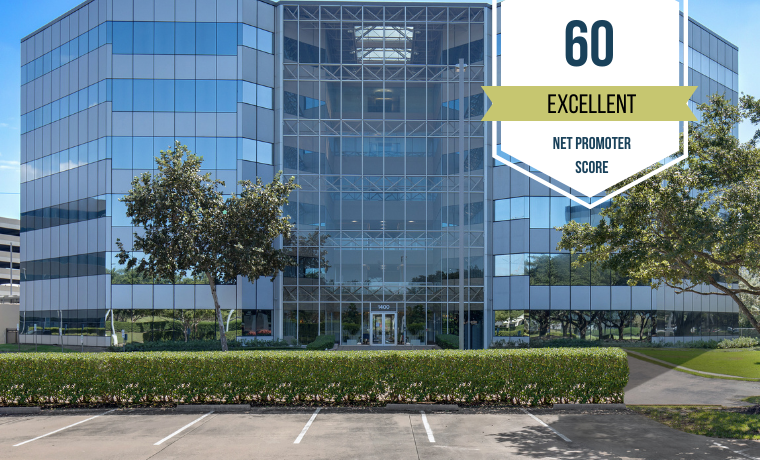You’re interested in commercial real estate and are ready to get down to the real important matter— the money.
What is the typical commercial real estate commission rate?
When do you get paid your commercial real estate commission?
In this article, we will answer these questions and more. Keep reading to learn the ins and outs of commercial real estate commission.
Table of Contents
- How Does Commission Work In Commercial Real Estate?
- Who Gets Paid A Commission In Commercial Real Estate?
- Who Pays Commission In Commercial Real Estate?
- 3 Factors That Affect Your Real Estate Commission
- #1: Commercial Real Estate Commission Rates
- #2: The Brokerage Split — Commercial Real Estate Broker Commission
- #3: The Number Of Agents Involved In The Transaction
- When Do You Recieve Your Commercial Real Estate Commission?
- Commercial Real Estate Commission In Texas
- Commercial Real Estate Commission: San Antonio
- Commercial Real Estate Commission: Houston
- Commercial Real Estate Commission: Dallas
How Does Commission Work In Commercial Real Estate?
Just like residential real estate, commercial real estate agents operate on a commission based on the sale or leasing of a property.
Let’s take a look at how real estate commissions are structured.
Who Gets Paid A Commission In Commercial Real Estate?
For the bulk of commercial real estate deals, commercial real estate commission is paid to one or two real estate agents:
- Listing Agent: This agent is responsible for marketing properties and fielding inquiries for the property owner, landlord, or seller.
- Buyers Agent: This agent is responsible for locating commercial real estate space for sale or rent for tenants and buyers.
Who Pays Commission In Commercial Real Estate?
Commercial real estate commission is either paid by a property owner or landlord, depending on if the property is for sale or for lease.
When a property is sold, the property owner is expected to pay all commissions upon closing.
However, in a leasing transaction, the owner/landlord may only be expected to pay half of the commercial real estate commission at lease signing and the other half upon tenant occupancy.
3 Factors That Affect Your Commercial Real Estate Commission
If you’re considering dipping your toe into commercial real estate, the earnings potential is probably one of the perks that intrigues you the most.
Let’s talk about the money.
How much commercial real estate commission can you expect to make?
The answer to this question can vary depending on three different factors:
- Real estate commission rates
- The brokerage split
- The number of agents involved in the deal
#1: Commercial Real Estate Commission Rates
Before diving into a commercial real estate transaction, the seller and commercial real estate broker must agree on a commission, which is typically a percentage of the sale price.
Sometimes, the commission will be listed in an agreement, when the brokerage firm is able to enter into an exclusive listing agreement with the seller. If the brokerage firm is not listing the property, the broker and seller will sign a listing agreement to confirm both parties agree with the commission price.
When it comes to commercial real estate commission rates, brokers can decide whatever commission rate they want to charge and can vary their rates depending on the deal. However, it is up to sellers to determine whether they will agree upon the given commission rate.
What Is The Average Commission On Commercial Real Estate?
Due to antitrust laws, it is illegal for brokers to have an agreement that establishes a standard commercial real estate commission. A commercial real estate commission rate will mainly depend on the price of the property.
For example, a typical commercial real estate commission can vary from 4-8% in deals under $1 million. Once you go above $1 million in property value, the commercial real estate commission will begin to decrease.
For example, a property with a $10 million sale price could pay a commission rate of 1-3% due to the extremely large sticker price of the property.
In some instances, the commission may be a flat fee. Though uncommon, some brokers and sellers prefer to agree upon a flat fee, where a predetermined commission is received upon closing regardless of the property’s final sale price.
A commercial real estate broker can also choose to have a minimum commission as a safety cushion in case the seller ends up accepting a low offer for the property.
Commercial Real Estate Lease Commission Rates
Commercial real estate commission for a lease transaction is typically based on a property’s comparable value.
For example, if a five year lease has a monthly payment of $6,000, the lease value would be based on the total payments over the course of five years. In this example, your commission would be based on the $360,000 property value.
In some cases, the landlord may try negotiating the commercial real estate commission rate to be reduced for longer leasing terms.
If the property in our example was being leased for 10 years, the broker could agree to a rate of 4% for the first 5 years and a rate of 3% for the remaining 5 years.
Additionally, the broker can negotiate to be paid a commercial real estate commission upon lease renewal. This is typically a reduced commission rate.
Another common reason for negotiating a commercial real estate commission rate for a lease could be to incentivize a deal for a low-occupancy building.
While these instances of negotiation do occur, the bulk of your transactions will likely be done on a non-negotiable commission rate.

#2: The Brokerage Split — Commercial Real Estate Broker Commission
As a commercial real estate agent, you work for a real estate broker.
Even if you handle the entire transaction on your own, state laws require the commission to be paid to the broker. It is the responsibility of the commercial real estate broker to pay the real estate agent commission.
Brokers can structure their commercial real estate commission in a number of ways, depending on how the brokerage is organized.
Typical Brokerage Split For Small Brokerages
Some real estate firms are comprised of a single broker and a few agents.
It is common in small real estate firms for the real estate broker to take a piece of the commission and give the rest to the real estate agents involved in the transaction.
In cases like this, splits are pretty simple.
Agents may start out with a 50/50 split and get to keep a larger percentage as they bring in more commission.
However, a 60/40 split is typical. In this case, the agent would receive 60% of the commercial real estate commission and the broker would keep 40%.
The brokerage split could also be based on a sliding scale that resets yearly. As real estate agents bring in more commission, their portion of the split can increase.
Typical Brokerage Splits For Larger Brokerages
Larger brokerages can be set up in teams.
For example, there may be separate teams for:
- Executive properties
- Office properties
- Retail properties
- Etc
Each team in the brokerage is run by a manager with a number of agents working underneath them.
In cases like these, the real estate agent may get a lower percentage because there are more agents involved in the split.
For example, the real estate agent keeps 40-50% of the commercial real estate commission while the team manager receives 20-30%, and the brokerage keeps the rest.
Some brokerages operate on shared commissions. This is where each member of the team gets a piece of the commercial real estate commission earned from each other’s closed deals.
Some brokerages make the bulk of their money by charging agents a flat fee. An agent may be charged $15,000 to $25,000 a year and only keep 5-10% of the commercial real estate commission instead of a larger chunk.
The Bottom Line
There is no one “best” commercial real estate commission structure. What works well for one real estate agent may not be ideal for another.
For example, if you work best in a team environment, you may make more money working on a team even if you get to keep less of a commission.
If you’re stronger on your own and feel like you don’t need the support of a manager to help you with transactions, you may make more money working solo and taking in a larger commission percentage.
Some brokerages may offer a draw, in which the broker advances a set amount on a weekly or monthly basis.
It is important to note that draws are not salaries. Think of draws as an advance on future commissions. You must pay back this amount before receiving any of your commercial real estate commission.
Draws can be an attractive option for those trying to get established as a commercial real estate agent, or those that just want more consistency with their income.
When considering a draw, keep in mind that you will want to start earning commissions to help offset the draw amount before you start to rack up too much debt to the brokerage.
It’s also important to keep in mind that if for any reason you want to switch to a different brokerage, you must pay off the total draw amount first.
#3: The Number Of Agents Involved In The Transaction
Commercial real estate deals usually have two agents involved, and in some cases, more than two agents.
This can happen when another agent brings a buyer to the listing agent. Typically, the buyer’s agent gets paid out of the commission that the seller or landlord pays, meaning the listing agent has to split their commission.
This scenario is less usual in commercial real estate than it is in residential real estate, but it still happens.
It may sound like the listing agent is getting the short end of the stick in this case, but it does help them close the deal and they still receive a commercial real estate commission for selling their buyer another agent’s listing.
The split among agents is commonly 50/50, but this isn’t always the case. Like everything involving commercial real estate commission, the split can be handled a number of different ways depending on the commission itself.

When Do You Receive Your Commercial Real Estate Commission?
Typically, you can receive your commercial real estate commission approximately 30 days after the sale or lease is executed and the commission agreement is executed.
The turn-around time can be shorter or longer than 30 days after the sale/lease and commission agreement is executed depending on your brokerage’s payment process.
However, there are some cases, although not typical, where you may not receive all of your commission at once.
For example, a broker and landlord can also agree to a structured payment where the broker receives commission payments over a set number of months.
If the building being leased is under construction, a broker may agree to receive half the commission after closing and the other half after build-out.
While these scenarios can happen, it is more common to have commission paid upfront after closing the deal and the commission agreement is executed.
The commission agreement is one of the first steps in a commercial real estate transaction. The closing process is a little more complex and will take up the bulk of the time to complete before you feel that commission check in your hands.
The closing process for commercial real estate occurs in 4 steps:
- Escrow
- Signing Legal Entity Contracts
- Due Diligence
- Title Report and Execution of Closing Documents

Commercial Real Estate Commission In Texas
In Texas commercial real estate, the average yearly earnings for a commercial real estate agent is approximately $75,000.
Commercial real estate commission rates can vary from city to city in Texas for two main reasons:
- Antitrust laws ensure there is no industry standard for commercial real estate commission rates.
- Cities can have different market conditions, which can affect the percentage of your commission.
Let’s take a look at some of the main city hubs for commercial real estate in Texas.
Commercial Real Estate Commission: San Antonio
While there is no industry standard for commercial real estate commission rates, a 4% commission rate is typical for the San Antonio commercial real estate market.
Keep in mind that while this commission rate is common, a large number of factors, as previously discussed, can influence your commercial real estate commission and this number is not a guarantee.
Commercial Real Estate Commission: Houston
Like San Antonio, the Houston commercial real estate market has a typical commission rate of 4%.
While there is no industry standard commercial real estate commission rate, a 4% commission rate is a common proposal in this area.
Commercial Real Estate Commission: Dallas
Dallas is a broker-heavy area and is the leading city for commercial real estate deals in the entire county.
In the Dallas commercial real estate market, a commission rate of 4.5% is commonly seen.
Like any commercial real estate market, it is important to realize that this is not an industry standard nor a guaranteed commercial real estate commission rate.






